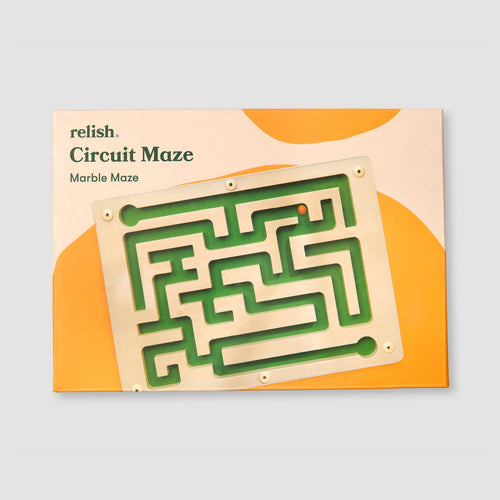In a world where dementia and social isolation often intertwine, understanding and addressing the unique challenges faced by people living with dementia is crucial.
This article delves into the heart of these challenges, offering insights and practical advice for caregivers and loved ones. By exploring the reasons behind loneliness and isolation in dementia and providing actionable tips, we aim to empower you to create a more inclusive, understanding, and connected environment for those living with dementia.
Read on to explore compassionate strategies to ensure that your loved one remains an integral part of your world despite the hurdles dementia may bring.
Why do people with dementia struggle with feelings of loneliness and isolation?
The journey of living with dementia is often accompanied by an increased sense of loneliness and isolation, a reality that can be as complex as the condition itself. Several factors contribute to this emotional landscape:
- Communication Barriers: As dementia progresses, it can become more challenging for individuals to express their thoughts and feelings, leading to a sense of disconnection from those around them.
- Memory Loss: The gradual loss of memories can create a gap between the person with dementia and their loved ones, making shared experiences and connections harder to maintain.
- Social Withdrawal: Due to difficulties in processing and engaging in social interactions, individuals may withdraw, inadvertently increasing their isolation.
- Misunderstanding from Society: Often, there's a lack of understanding about how to interact with and include people with dementia, which can lead to unintentional exclusion.
These factors, highlighted in this study, underscore the importance of tailored support and inclusive approaches to alleviate these feelings of loneliness and isolation.
Why do people with dementia isolate themselves?
The inclination of individuals with dementia to isolate themselves is a multifaceted issue, often intensifying as the condition progresses. This withdrawal can stem from a myriad of reasons:
- Overwhelmed by Social Situations: As dementia advances, the ability to process and respond to social cues diminishes, making social interactions increasingly overwhelming and exhausting.
- Fear of Misunderstanding and Judgment: The anxiety of being misunderstood or judged for their condition can lead to a preference for solitude.
- Loss of Confidence: Deterioration in cognitive abilities can erode self-confidence, making the individual hesitant to engage in social activities they once enjoyed.
This withdrawal not only exacerbates feelings of loneliness but can also contribute to a cycle of emotional distress, further deepening the sense of isolation. Understanding these underlying reasons is key to providing empathetic and effective support.
7 Tips for Combating Isolation and Loneliness in Dementia
Understanding the reasons behind the isolation and loneliness experienced by people with dementia is the first step.
The next, and perhaps the most crucial, is taking actionable steps to mitigate these feelings.
Here, we offer practical, compassionate tips that caregivers and loved ones can implement to help their loved ones feel more connected and less isolated, regardless of the stage of dementia they are experiencing.
1. Establish a Regular Communication Routine
A consistent communication routine can significantly reduce feelings of isolation. This could be as simple as a daily phone call or video chat. For example, setting a specific time each day for a call can give your loved one something to look forward to.
During these interactions, focus on listening and engaging with their feelings, even if the conversation seems repetitive or challenging. This regular contact not only provides emotional support but also helps maintain a sense of normalcy and connection.
2. Encourage Participation in Familiar Activities
Engaging in familiar activities can provide comfort and a sense of inclusion for your loved one. Whether it's a hobby they've always loved or a simple daily routine like gardening or walking, these activities can be therapeutic.
For someone in the early stages of dementia, this might involve more complex tasks, while for those in later stages, simpler activities like folding laundry or organising household items can be more appropriate.
Explore our bank of free dementia-friendly activities for all interests and capabilities to gain inspiration.
3. Utilise Memory Aids and Reminders of the Past
Items that help spark memories of the past, such as photo albums, memory boxes, or even digital apps designed for dementia, can help stimulate conversations and shared memories.
These aids can serve as a bridge to past experiences and can spark moments of connection and recognition, reducing feelings of loneliness.
Our All About Us conversation game is specially designed for people with dementia to help them reconnect to past joys throughout their lives.
4. Foster a Supportive Social Network
Building a supportive social network can be incredibly beneficial. This network can include family, friends, community members, and even support groups.
For individuals with dementia, being part of a community that understands and accepts them can be incredibly reassuring. Organising small, familiar gatherings or participating in dementia-friendly community events can help maintain social connections.
Explore more advice on how to maintain relationships while living with dementia in our Wellbeing Hub.
5. Introduce Pet Therapy
Pets can provide companionship and unconditional love, which can be extremely comforting. For someone with dementia, the presence of a pet can reduce stress, encourage activity, and provide a sense of responsibility and routine. Even if owning a pet isn't feasible, arranging regular visits with therapy animals can have a positive impact.
Read more about caring for a pet when you have dementia here.
6. Adapt Communication Techniques
As dementia progresses, effective communication becomes key. This involves using simple, clear language, maintaining eye contact, and showing empathy.
Non-verbal communication, such as touch, smiles, and gestures, can also be powerful in conveying affection and presence, especially when verbal communication becomes challenging.
See our guide on how to communicate with someone with dementia for more advice.
7. Create a Dementia-Friendly Environment
A dementia-friendly environment, one that is safe, familiar, and stimulating, can significantly impact the well-being of someone with dementia.
This includes steps such as:
- Having clear labels on doors
- Keeping a consistent layout
- Ensuring the environment is calm and soothing
Such an environment can help reduce confusion and anxiety, promoting a sense of security and belonging.
Learn more about creating a dementia-friendly environment by listening to our podcast.
By implementing these tips, caregivers and loved ones can play a pivotal role in alleviating the loneliness and isolation often experienced by people with dementia, fostering a more inclusive and compassionate environment for them to thrive in.
We Stand For Hope & Support After A Dementia Diagnosis
In our journey to promote the wellbeing of people with dementia, we have developed a range of specialist products and activities designed with the unique needs of people living with dementia in mind. These tools not only aid in building stronger connections but also enrich the daily lives of those affected by dementia.
From engaging activities that spark joy and memory to products that facilitate easier communication and interaction, Relish is dedicated to enhancing the quality of life for people with dementia. Explore our dementia products and free activities to discover how you can bring more light and connection into the life of your loved one.






















